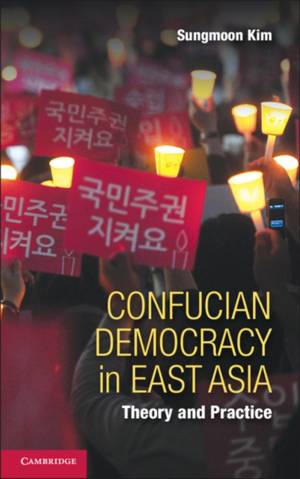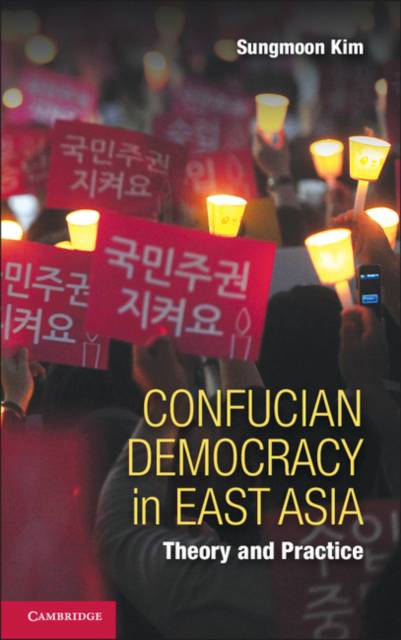
- Afhalen na 1 uur in een winkel met voorraad
- Gratis thuislevering in België vanaf € 30
- Ruim aanbod met 7 miljoen producten
- Afhalen na 1 uur in een winkel met voorraad
- Gratis thuislevering in België vanaf € 30
- Ruim aanbod met 7 miljoen producten
Zoeken
€ 164,45
+ 328 punten
Uitvoering
Omschrijving
This book explores a mode of democracy that is culturally relevant and socially practicable in the contemporary pluralistic context of historically Confucian East Asian societies, by critically engaging with the two most dominant theories of Confucian democracy - Confucian communitarianism and meritocratic elitism. The book constructs a mode of public reason (and reasoning) that is morally palatable to East Asians who are still saturated in Confucian customs by reappropriating Confucian familialism, and using this perspective to theorize on Confucian democratic welfarism and political meritocracy. It then applies the theory of Confucian democracy to South Korea, arguably the most Confucianized society in East Asia, and examines the theory's practicality in Korea's increasingly individualized, pluralized, and multicultural society by looking at cases of freedom of expression, freedom of association, insult law, and immigration policy.
Specificaties
Betrokkenen
- Auteur(s):
- Uitgeverij:
Inhoud
- Aantal bladzijden:
- 330
- Taal:
- Engels
Eigenschappen
- Productcode (EAN):
- 9781107049031
- Verschijningsdatum:
- 28/02/2014
- Uitvoering:
- Hardcover
- Formaat:
- Genaaid
- Afmetingen:
- 150 mm x 231 mm
- Gewicht:
- 566 g

Alleen bij Standaard Boekhandel
+ 328 punten op je klantenkaart van Standaard Boekhandel
Beoordelingen
We publiceren alleen reviews die voldoen aan de voorwaarden voor reviews. Bekijk onze voorwaarden voor reviews.











